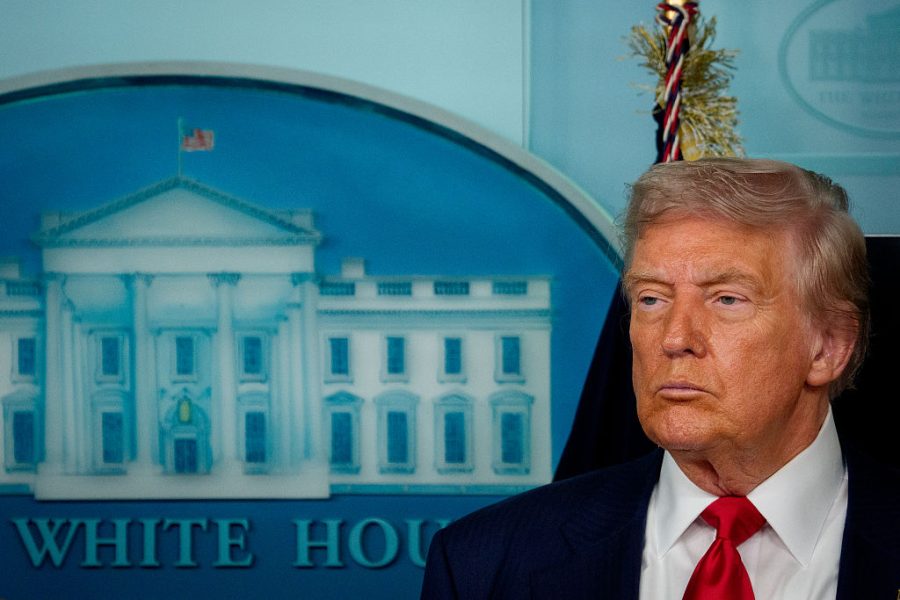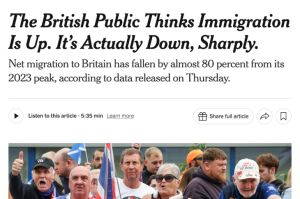Every year the State Department is required to produce a report on the human rights situation in every country in the world. The report card for the UK came this week. While otherwise fairly anodyne, the US was painfully scathing about Britain’s record on free speech.
Unsurprisingly, the State Department was unhappy about the Online Safety Act’s long-arm provisions affecting US websites, abortion protest laws and strict contempt rules (which last year forced the New Yorker to take the drastic step of geoblocking an important and informative article about the Lucy Letby case). It was particularly caustic about the fallout from Southport, where it did not mince its words. It stated, citing widespread arrests and prosecutions for online comments, that “censorship of ordinary Britons was increasingly routine, often targeted at political speech.” Ouch.
Every instinct of this government will be to face down the State Department
Admittedly this appraisal bears strong marks of a Trump administration finger discreetly placed on the scale. Secretary of State Marco Rubio has long seen State Department bureaucracy as too “woke” and progressive in its approach to human rights abroad: reportedly the order has gone out to backpedal equality and diversity issues and emphasize traditional freedoms instead. Furthermore, the Trump government’s own free speech record at home is far from spotless: witness its fairly heavy-handed attempts to browbeat universities, broadcasters and others to toe its line.
Nevertheless, this is something we’d be very foolish to ignore. The first point is that, biased or not, the State Department is correct. Britain, or at least the establishment in charge of it, shows worrying signs of seeing free speech as a distraction to be sidelined rather than a value to be pursued. True, the whirlwind state descent on social media following the Southport riots, and the stern warnings from police and others to avoid controversial comment, may not have been secretly ordered from Downing Street in the manner of some Central American dictatorship. But an unprecedented and vicious clampdown it still was, even if it reflected no more than tacit agreement among the great, the good and the courts that something drastic had to be done to stop people speaking out of turn.
There were plenty of other things that could have been highlighted in the report, and which would have been an entirely fair cop. Even if the total suppression by injunction of discussion over the Afghan refugee crisis came too late, there were always the 30-plus people a day arrested for social media posts, regular police interventions to silence speakers who might cause offense, and so on.
Secondly, it’s important that we should take note of how others see us. The slow but steady erosion since about 1990 of Brits’ right to speak their minds without state interference has passed many by in the UK who are not free speech enthusiasts. And not entirely surprisingly: gradual political change often presents itself as a fait accompli to a population when it is too late to do much about it.
But all this has not escaped foreigners. Britons should be worried that their country, once seen as a beacon of free speech in an increasingly authoritarian Europe, should now be seen as a serious backslider. Particularly so where this is by the US, a country which retains an instinctive affection for the UK arising out of shared history and culture. No doubt Uncle Sam would, in its own interests, like to discreetly detach Britain diplomatically from Europe; nevertheless, Brits ignore this at their peril.
Thirdly, all this should remind Britons that it is in their interest to keep the free speech issue from hurting their international reputation further. At the moment they are not doing this. They do not endear themselves to an increasingly online world community when they place large swaths of the internet off-limits to those without VPNs as a result of the Online Safety Act. The UK government’s stern orders earlier this week to websites to preserve online free speech or else will deceive no one and will be seen as the reputation management measure it is.
Still less will they win friends when OFCOM, a UK government agency, writes threatening letters on official notepaper to US websites with no connection with the UK at all such as 4Chan, gab.ai and Kiwifarms. Earlier this year it did just this, demanding promises to comply with UK law and to fill in all sorts of OFCOM paperwork, and menacing them with enormous fines if they did not. (They politely told it to go fish, but by then the damage was done.)
Every instinct of the British government will be to face down the State Department and carry on referring to keeping the UK internet safe. But it would do well to bear in mind that foreigners can sometimes be right and that taking steps to keep them onside, even at the cost of a little pride, can reap big dividends. This is one such occasion.

























